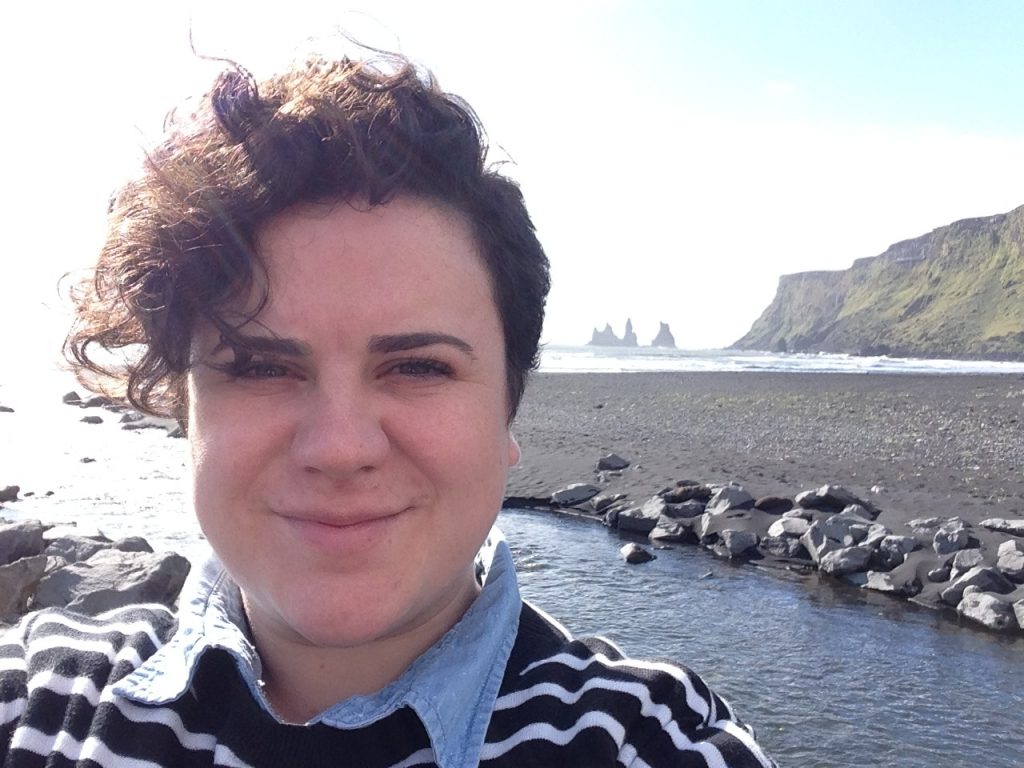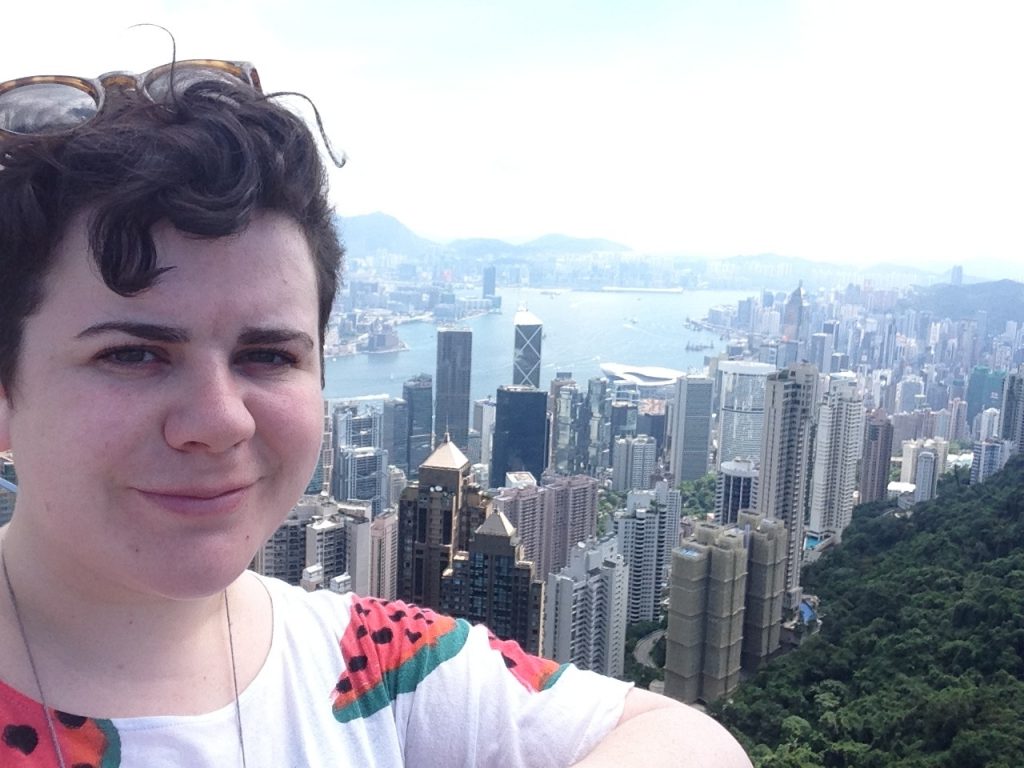Zora Sanders has been the editor of one of Australia’s oldest and most respected literary journals, Meanjin, since early 2013. Appointed editor at just 25 years old, Zora has helped increase Meanjin’s digital presence by publishing regular blog posts and releasing an iPad app. Zora is also interested in issues around translation, saying in a blog post that:
Language is fascinating to many, but it’s rarely the spark that ignites a passion for language study in a child or young adult, when the capacity for language learning is at its greatest. A novel, a short story, a poem, a comic, a film—for many these are the things that first ignite the passion to discover another language and culture…
It is the work of translators to give us access to these cultures, to show us ways of thinking and being that may be beyond our lived experience. But it is up to us as English speakers and readers to forge a market for these works, to show that we want to know about the rest of the world, even if we don’t yet speak its language.
And so Zora received a grant from the Australia Council and has been travelling the world, jumping from continent to continent to learn more about the nature of literary journals and the world of translated writing. Writer’s Edit recently spoke with Zora about her travels and revelations.

Was the Australia Council grant you received to travel in an existing program, or was it an initiative that you came up with yourself and pitched to them?
The Australia Council offered a new grant category in 2014 specifically to allow editors to undertake professional development projects. Devising the project was up to the individual editors, and I really wanted to focus on translation—how to commission, edit, proof and publish work in translation, how to find and work with a good translator, how to bridge language and cultural divides with authors, how to find authors you want to translate in the first place.
I also wanted to see how different literary journals and small publishers are adapting and restructuring themselves in response to the much-discussed digital revolution. I really wanted to understand what makes a good journal tick. So in pursuit of these two goals I put together an itinerary to travel to Hong Kong, London and New York. But after I got the grant I became a bit, well, ambitious and I decided I could stretch the grant money to take me to Amsterdam, Iceland, Portland and Los Angeles as well. I was away for seven weeks in the end.
What did you learn about writing and publishing by visiting so many countries?
I was lucky enough to meet with some wonderful translators and editors in all those places, including Lucas Klein, a translator at Hong Kong University and guest editor of Cha literary journal. His insights into translation were incredible, if often somewhat depressing. It’s usually estimated that only about 3 per cent of all work published in English are translations, but that includes all textbooks, manuals, legal documents, that sort of thing. So we really have almost no idea what the rest of the world is saying, thinking, doing in their literature.
I also learned that the best literary journals seem to have strongly collaborative teams where editorial duties are shared and there is a strong community of editors and writers who feel a deep personal investment in the journal and its wellbeing. Perhaps that isn’t really surprising, but it’s certainly given me a lot of food for thought about how Meanjin operates.

How is publishing approached in different countries? Are their publishing trends that are specific to certain places around the globe, and are they very different to the way writing and reading is approached in Australia?
Something that I found both funny and reassuring was that everyone was a bit down on their own industry. In Iceland I spoke to some young writers who felt the Icelandic publishing industry is moribund and impossible to break into and the situation is all doom and gloom. But then you consider the fact that they even have a publishing industry for 320,000 people, and that 1 in 10 Icelanders will publish a book in their lifetime, whereas you might be lucky if 1 in 10 people have read a book in other places, it puts the complaints in perspective.
Icelandic even has a special word, jólabókaflóð, which means ‘Christmas Book Flood’: the period when all the publishers put out what they hope will be the big Christmas books for that year, and everyone talks about the candidates and decides which books to give as gifts. It’s hard to be too cynical about a country that has the word ‘jólabókaflóð’ in its vocabulary. Publishing is always an industry in crisis, so it’s quite comforting to see that everyone is in the same position: unsure, nervous, but ambitious and creative too.
It was also heartening, and even astonishing, just how many new journals, new small presses, new online mags etc. have set up in the last few years. While the popular dialogue is around the death of print, at the grassroots level there is a lot to be optimistic about. I worked in New York with the journal A Public Space, which publishes some of the best short fiction I’ve ever read. They also just published their first monograph in partnership with Graywolf Press, a volume of short stories by Danish author Dorthe Nors, who also just became the first Danish author to have a story published in the New Yorker. So it does seem that even smaller journals can have a big influence in the current publishing climate, if they have good timing, taste and ambition.

Do you have any advice for Australian writers in terms of breaking into the literary journal scene, both at home and internationally? Are there any tips and tricks?
Ah, the old ‘tips and tricks’ question! There’s no trick to being published, other than ‘be a good writer who files on time and writes to word limit’. If you can do those three things, you’ll be published. Easy, right? If you are on time and to word limit, but no one wants to publish your work, then it’s reasonable to wonder if you might be a poor writer.
In that instance, you have three options: practice writing more (and get honest feedback from those around you), write for your own pleasure with no view to publication or accept that you aren’t a writer and give up. All of those are valid options and people shouldn’t get too hung up on publication as the be-all and end-all of writing.
If you don’t feel compelled to write, regardless of whether it will ever see publication, you probably won’t make it. And giving up on publication, or writing as a whole, is a perfectly sensible, even wise, decision to make. If you do feel compelled to write, and you have something worthwhile to say, then it’s likely you’ll get better at it and eventually someone will want to publish you.
***
Writer’s Edit would like to thank Zora Sanders for taking the time to answer our questions. You can find more writing and editing from Zora by checking out/subscribing to Meanjin, and following her on Twitter with @Zoezora.